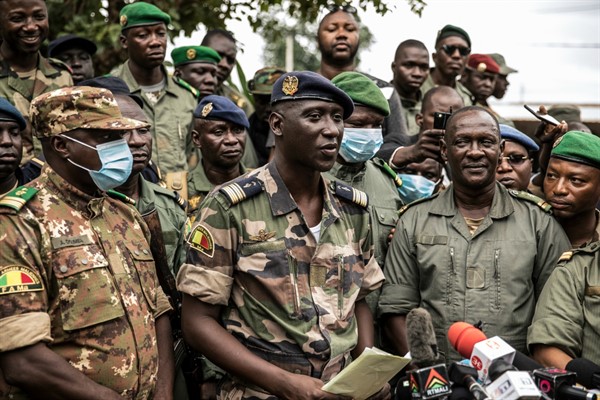Editor’s Note: Every Friday, Andrew Green curates the top news and analysis from and about the African continent.
President Ibrahim Boubacar Keita was forced from power in a military coup Tuesday, upending the political situation in Mali and, with the country at the epicenter of a fight against a growing Islamist insurgency, raising alarms about regional security. The coup unfolded rapidly as mutinying soldiers seized weapons from a garrison outside the capital, Bamako, then descended on the city, capturing Keita and Prime Minister Boubou Cisse. Within hours, Keita appeared on state television to dissolve the government and announce his resignation.
His removal follows months of political turmoil, including regular protests that tapped into growing frustration with Keita, who was first elected in 2013. His administration has been accused of corruption and electoral manipulation, even as it has failed to solve the country’s economic woes or end an eight-year Islamist insurgency. The protests have been led and shaped by young people desperate for a change in the status quo, as Blair Glencorse and Moussa Kondo explained in a WPR briefing earlier this month. Those young Malians appear to support the coup: A demonstration to celebrate Keita’s removal was scheduled for Friday.

